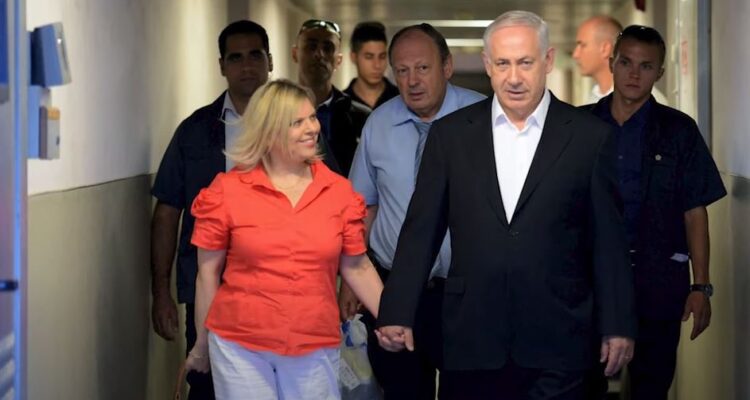The operation was performed under full anesthesia, and Justice Minister Yariv Levin served as acting prime minister.
By JNS
Israeli Prime Minister Benjamin Netanyahu was recovering on Monday morning at Hadassah Medical Center in Jerusalem’s Ein Kerem following hernia surgery.
The procedure “ended successfully” and Netanyahu was “awake, talking to his family, and his situation is perfect,” Alon Pikarsky, the hospital’s director of general surgery, said in a video statement.
Netanyahu was scheduled for the procedure on Sunday night after his medical team discovered the hernia during a routine checkup over the weekend.
The operation was performed under full anesthesia, and Justice Minister Yariv Levin served as acting prime minister while Netanyahu was sedated.
On Dec. 31, following routine annual checkups by his medical team, Netanyahu received a clean bill of health after undergoing an emergency cardiac procedure earlier in the year.
“During the past year, [the prime minister] underwent annual routine examinations without any unusual findings,” said a letter signed by Netanyahu’s personal physician, Dr. Tzvi Berkovitz, and professor Alon Pikarsky, head of surgery at Jerusalem’s Hadassah Medical Center.
“The prime minister maintains a healthy lifestyle and a proper diet. The state of his health is completely normal,” added the physicians.
A separate note from Sheba Medical Center at Tel HaShomer in Ramat Gan touched upon the condition of Netanyahu’s heart, noting that the premier was outfitted with a cardiac pacemaker several months earlier.
“The pacemaker implanted in his body is working properly, the electrical indicators are within the norm, he is not dependent on the pacemaker, and no unusual incidents have been recorded,” wrote professor Roy Beinart, director of Sheba’s Arrhythmia Institute.
“From a cardiac point of view, the prime minister is completely stable and does not need additional treatment besides routine monitoring,” said Beinart.





